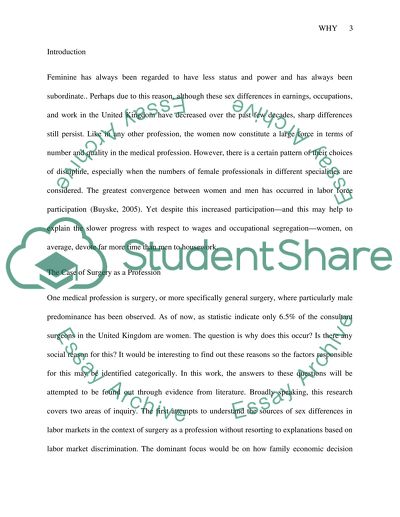Cite this document
(“Why do women only make up 6.5% of consultant surgeons in the UK Essay”, n.d.)
Retrieved from https://studentshare.org/miscellaneous/1516985-why-do-women-only-make-up-65-of-consultant-surgeons-in-the-uk
Retrieved from https://studentshare.org/miscellaneous/1516985-why-do-women-only-make-up-65-of-consultant-surgeons-in-the-uk
(Why Do Women Only Make up 6.5% of Consultant Surgeons in the UK Essay)
https://studentshare.org/miscellaneous/1516985-why-do-women-only-make-up-65-of-consultant-surgeons-in-the-uk.
https://studentshare.org/miscellaneous/1516985-why-do-women-only-make-up-65-of-consultant-surgeons-in-the-uk.
“Why Do Women Only Make up 6.5% of Consultant Surgeons in the UK Essay”, n.d. https://studentshare.org/miscellaneous/1516985-why-do-women-only-make-up-65-of-consultant-surgeons-in-the-uk.


